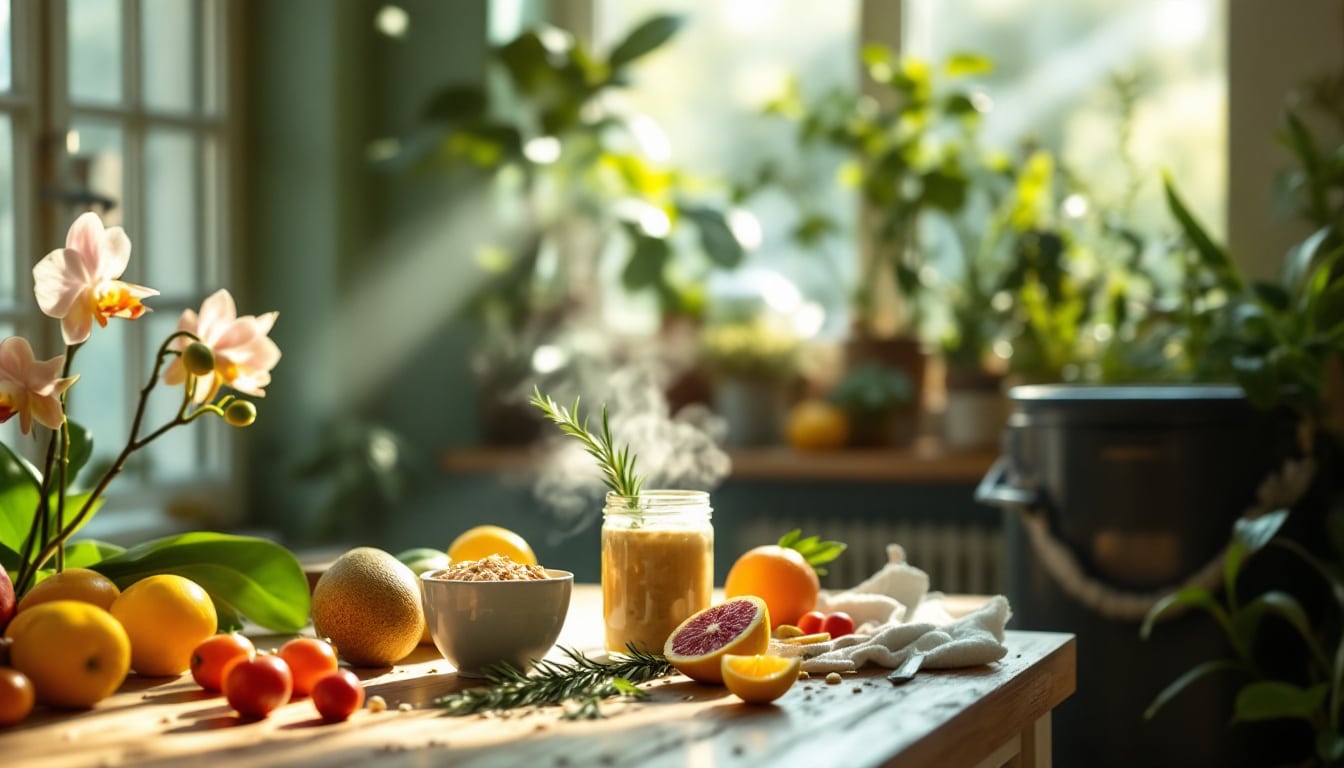Phytotherapy, often recognized as herbal medicine, is a practice dedicated to utilizing plants and their extracts to promote health and vitality. This ancient discipline relies on the therapeutic properties of herbs and has stood the test of time due to its profound effects on health and well-being.
At its core, phytotherapy is driven by the harnessing of plant-based compounds to treat and prevent various health conditions. Many of these plants are rich in phyto-nutraceuticals, a group of substances known for their ability to improve immunity, energy, and longevity. Among these potent botanicals are rejuvenating herbs such as Amla, Tulsi, and Giloy. These herbs are celebrated for their remarkable capacity to boost the immune system, support cognitive health, and promote overall vitality.
The practice of clinical herbalism shares a deep-rooted history with phytotherapy, both focusing on using the natural elements found in plants to support health. Through centuries, people have consistently turned to plants for healing, relying on their own gardens to cultivate essential remedies for common ailments. This longstanding tradition forms the backbone of herbal remedies, which aim to treat diseases holistically and sustainably.
A notable shift in holistic health practices is the movement towards embracing holistic health, which transcends conventional supplementation. This approach integrates not just physical wellness, but also mental health and environmental consciousness, crafting a harmonious wellness ecosystem.
With the growing awareness of the drawbacks of modern diets, the concept of energy vampires — foods and habits that drain vitality — has emerged. Nutrition plays a critical role in maintaining energy levels, mental clarity, and physical strength, no matter one’s age. Understanding this connection leads to an empowered approach in choosing the best nutrients, ensuring that your diet triumphed over these energy-depleting elements.
One of the most appealing aspects of phytotherapy is its capacity to boost energy naturally, circumventing dependency on stimulants like coffee. Some of the best herbal solutions for boosting energy without coffee include Ashwagandha and ginseng. These herbs, when incorporated into a balanced routine of diet, exercise, and quality rest, enhance focus and sustain energy levels without the crash.
The knowledge encompassed within Barbara O’Neill’s Natural Remedies Collection offers a comprehensive resource for those seeking to achieve optimal balance and wellness through natural means. The collection provides not just remedies, but also rich insights into nurturing one’s health, offering a pathway to lasting vitality and robust health.
Sustainability is a crucial factor when discussing the future of health solutions. Practices that integrate back-to-nature remedies emphasize the importance of environmental sustainability, intertwining it with the goals of achieving personal well-being. By focusing on natural elements, individuals adopt a lifestyle that supports both inner and environmental health.
Phytotherapy also plays a significant role in addressing chronic health conditions. By applying herbal science, one can devise natural strategies that tackle long-term ailments, reducing reliance on synthetic medications. This evidenced-based approach provides a gentle yet firm pathway to health, allowing individuals to manage their conditions more effectively.
As the landscape of health solutions evolves, the importance attributed to herbal remedies for preventive and curative purposes is being re-evaluated and celebrated. Modern research continues to uncover the molecular mechanisms that empower phytotherapy, reaffirming its place as a steadfast option in healthcare.
The benefits of natural health solutions extend beyond individual health. They offer ecological advantages as well. By switching to herbal solutions, we reduce our carbon footprint, conserve natural resources, and promote biodiversity.
The future of phyto-nutraceuticals is promising, with ongoing studies delving into their potential applications and efficacy. This burgeoning field is frontlining a movement to redefine health sovereignty using nature’s own pharmacy. Whether it is through enhancing immunity or promoting longevity, herbs provide a natural complement to modern medical practices.
Whether one is seeking to combat chronic fatigue, enhance cognitive function, or rejuvenate the skin, phytotherapy provides balmy solutions that respect the body’s innate wisdom and rhythm. By integrating these herbal practices into everyday life, lasting vitality is not just an aspiration but a tangible reality.

Frequently Asked Questions about Phytotherapy for Lasting Vitality
Q: What is phytotherapy?
A: Phytotherapy is the practice of using plants and plant extracts to support health and well-being. It emphasizes natural health solutions using botanical resources.
A: By incorporating herbs and plant extracts, phytotherapy aims to improve energy levels, boost immunity, and promote overall wellness.
A: Common herbs include Amla, Tulsi, and Giloy, which are known for their benefits in enhancing immunity and vitality.
A: Phytotherapy is a key component in embracing holistic health, integrating physical wellness, mental well-being, and environmental sustainability.
A: Yes, clinical herbalism, a branch of phytotherapy, has been used for centuries to support chronic health issues by utilizing natural plant remedies.
A: To boost your energy naturally, consider using herbs like ashwagandha and ginseng as part of a balanced diet, regular exercise, and quality sleep regimen.





